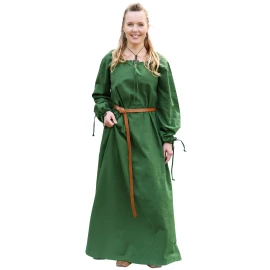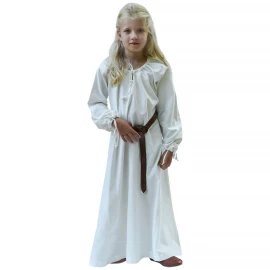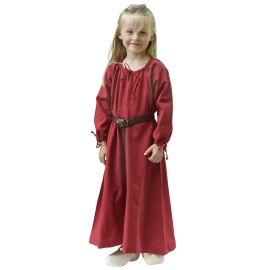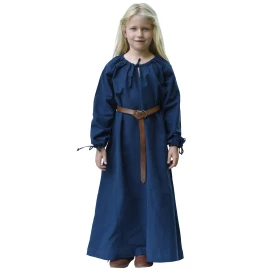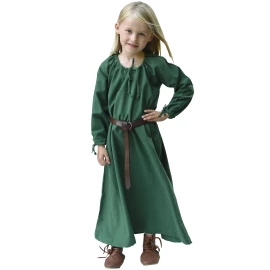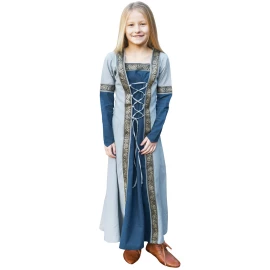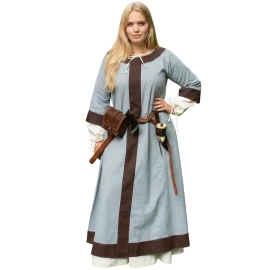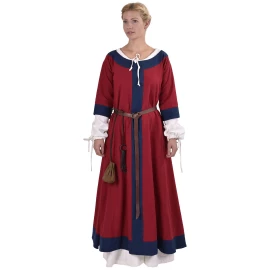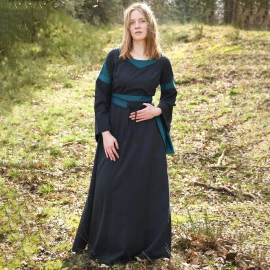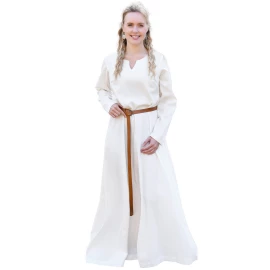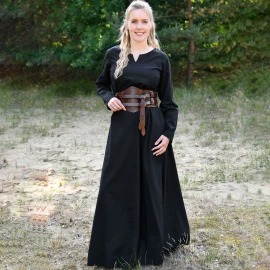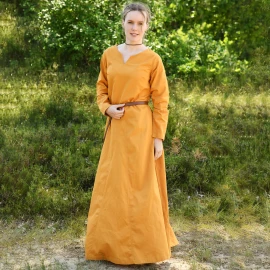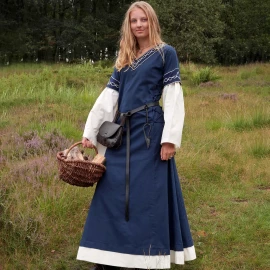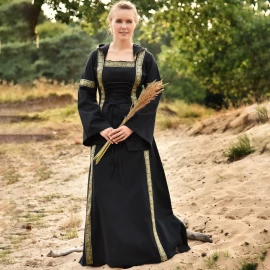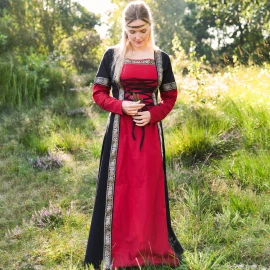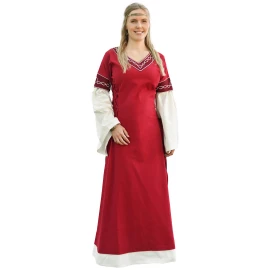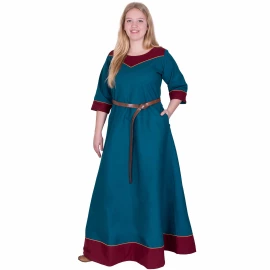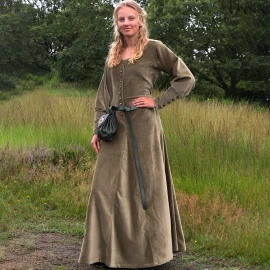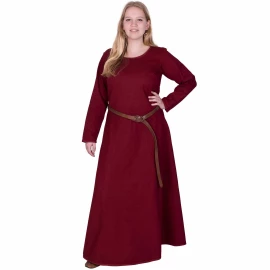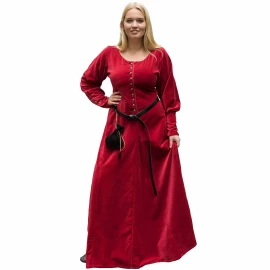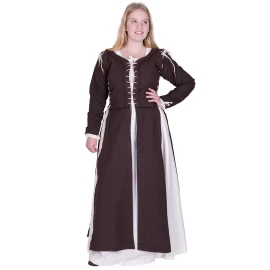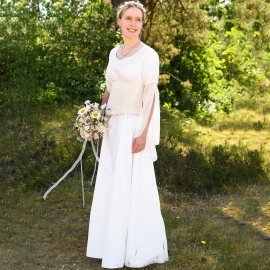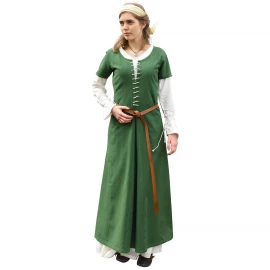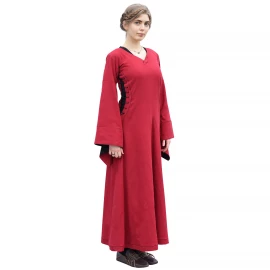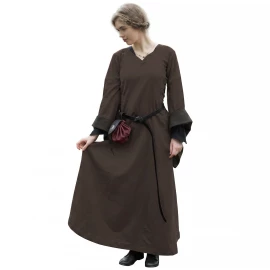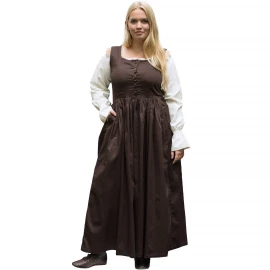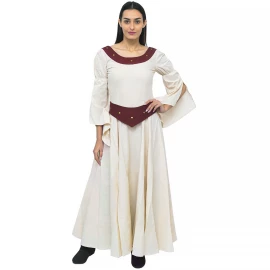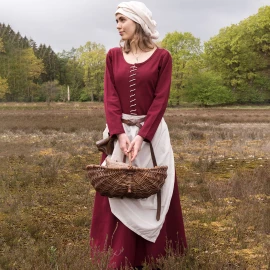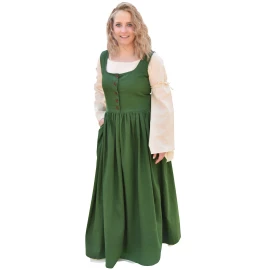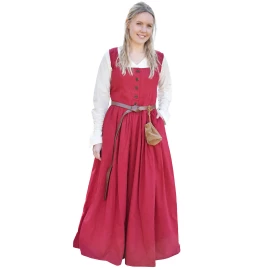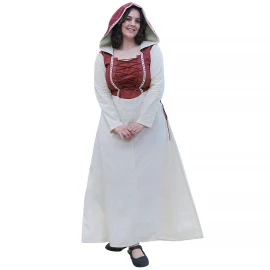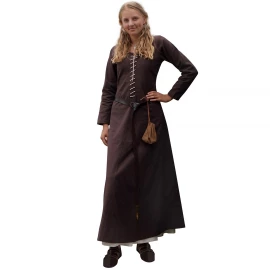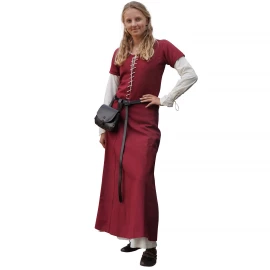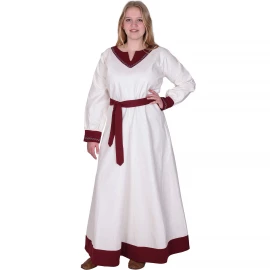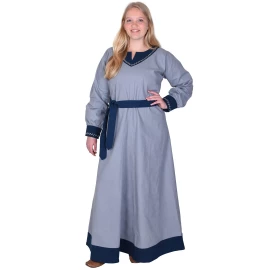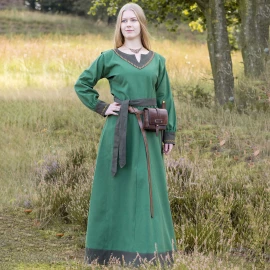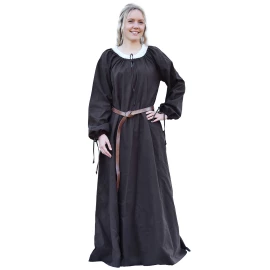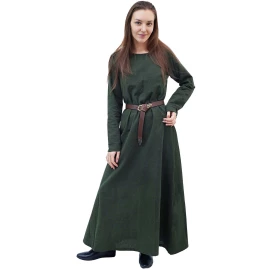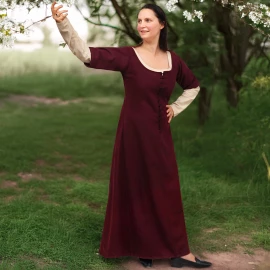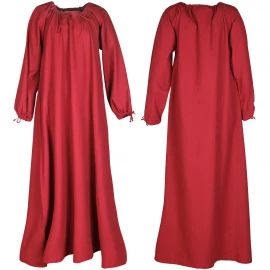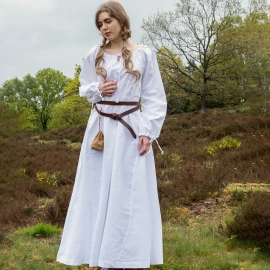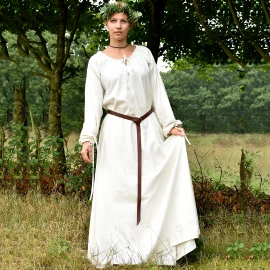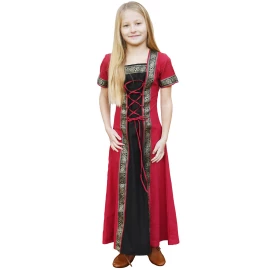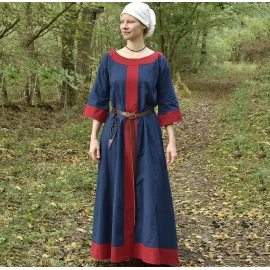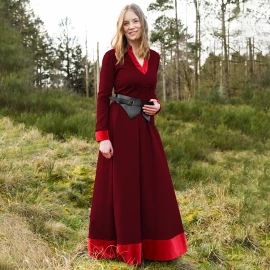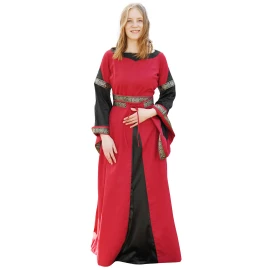Medieval Dress, Open-Sided Bliaut Amal, blue/natural
This long, waisted medieval dress with colour contrasting details is made of cotton fabric. The side seams are open from the hip up to the upper arm and feature a lacing for individual adjustment. The Church did not approve at all of these side openings that partly revealed the undergarment, which explains why they are also referred to as gates of hell. The tie strings are equipped with metal tips for easy threading through the stitched eyelets. So-called gores (wedge-shaped pieces of fabric) inserted into the side seams and front and back panels of the skirt piece give the dress a generous flare. The flared trumpet sleeves and the decorative stitches at the sleeve hems and around the open side seams give the dress a noble finishing touch. Further product information ...
Medieval Dress, Open-Sided Bliaut Amal, blue/natural
The cut of the dress is typical of a so-called bliaut (or bliaud) and follows the fashion of the 11th to 13th centuries. While the women's garb had been rather loosely cut and figure-concealing until then, this era saw the rise of increasingly close-fitting garments. The Bliaut was initially a courtly outer gown, as the flared sleeves were not suitable for the labouring classes. Over time, this type of dress eventually also gained popularity among the middle classes, but was then most commonly fitted with straight-cut sleeves. It was not only worn by women, but also by men - in such case as a knee-length outer garment.
The Bliaut was notably characterized by the side openings at waist level and the trumpet sleeves. While the gates of hell at first rather resembled wider cut, slightly oversized armholes, they gradually became larger over time until they eventually extended down to the hips. The trumpet sleeves could assume extreme shapes as well, at times reaching to the floor. The Bliaut was usually combined with a chemise or shift, a veil and a narrow belt.
Historical illustrations of bliauts can be found amongst others on the fresco showing Sant'Elena in the basilica of San Lorenzo in Milan or in the Hortus Deliciarum, a late 12th c. encyclopedic compendium.
Specifications:
- Available sizes: S, M, L, XL, XXL
- Colour: blue/natural (also available: red/black, brown)
- Material: 100% cotton
- Length overall size M: approx. 145cm (measured from the highest shoulder point down to the bottom hem)
- Care instructions: Machine wash at 40°C, gentle cycle, do not tumble dry. We recommend washing the dress separately.
Size Chart - Women - Dress
| Size | S | M | L | XL | XXL |
| Chest Circumference (incm) | 88 | 96 | 104 | 116 | 128 |
How to find the right size:
To take your body measurements correctly in order to determine you clothing size, please always wrap the measuring tape horizontally around your body at the fullest part. For dresses, sizes are based on your chest circumference. If you happen to fall between two sizes, we recommend that you go up a size. Ease is included in the pattern and reflected in the finished measurements.
Delivery includes the dress only! The other items pictured above are available separately in our online shop. In any case, the dress should be worn combined with a shift or blouse underneath.
As authentic as possible, as modern as necessary!
This medieval dress is part of our line of period clothing and medieval garments for men, women and children. From the first sketch to the last stitch, this garment was planned, designed and handcrafted with particular attention to detail. Our clothes are modeled (sometimes accurately, sometimes less so) on historical examples, grave finds and original museum pieces where they exist. We always endeavour to keep the necessary adjustments to today's standards, e.g. in terms of size and manufacturing process, to a minimum. Just see for yourself!
We are here for you!
